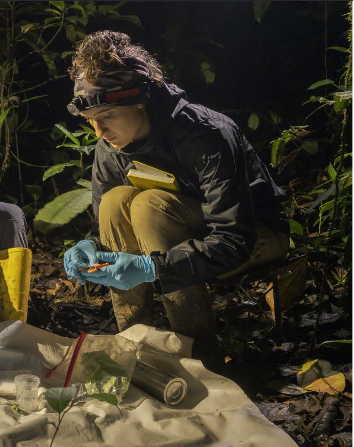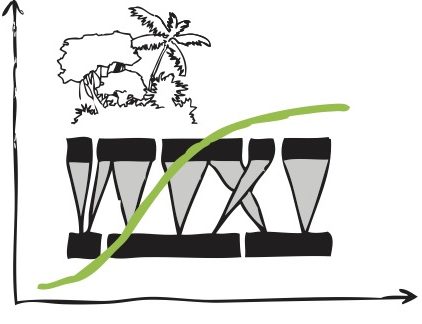Throughout my doctorate, I have been driven by a fascination with natural cycles and the efficiency of the natural world. My early background as a chemist allowed me to explore these processes on a microscopic scale, focusing on the turnover of matter and energy. Transitioning to ecological research, I expanded my scope to larger-scale understorey processes within tropical forests. My current research centres on leaf litter decomposition and predator-prey networks, particularly involving poison frogs and their alkaloid-producing prey.
To investigate decomposition, I designed and implemented an experiment using litterbags and teabags, conducted along a forest chronosequence and within the PREX framework. This approach allowed me to assess how disturbances of varying scales, along with environmental variables, influence decomposition rates. Additionally, I collected and analysed the arthropods that colonized the litterbags during incubation to understand how these disturbances impact decomposer communities.
In parallel, I am studying predator-prey networks by sampling available prey items of leaf-litter frogs across different forest successional stages and legacies. Collaborating with Karla Neira, we collected the stomach contents and alkaloid profiles of poison frogs from our study plots. Our goal is to identify specific prey preferences of different frog species by matching these findings with prey databases.
Currently, I am focusing on analysing the alkaloid profiles present in the skin of poison frogs to construct a detailed network that connects toxin-producing arthropods with these specialised amphibians.
With my work I hope to highlight the importance of resilience in regenerating forests, particularly within understorey processes, cycles, and ecological networks.


